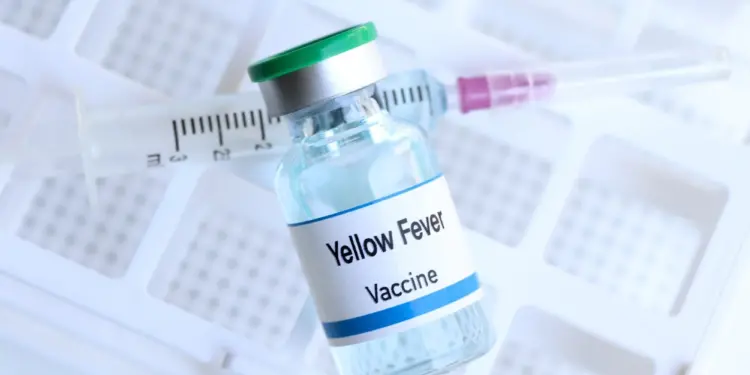By Ebi Kesiena
Uganda has launched a nationwide yellow fever vaccination campaign to protect its population from the mosquito-borne disease that has been a long-standing threat.
According to Dr. Michael Baganizi, the immunization official at the Ministry of Health, as at the end of April, Ugandan authorities had vaccinated 12.2 million of the 14 million people targeted.
As part of international health regulations, Uganda will now require everyone traveling to and from the country to present a yellow fever vaccination card.
Baganizi stated that the government hopes this requirement will encourage more people to get vaccinated, addressing vaccine hesitancy that concerns healthcare providers in the East African nation.
The single-dose vaccine has been offered free of charge to Ugandans aged 1 to 60. Vaccination centers have been set up in various locations, including schools, universities, hospitals, and local government units in the capital, Kampala, and other regions.
Previously, Ugandans typically paid around $27 to receive the yellow fever vaccine at private clinics.
Uganda, with a population of 45 million, is one of 27 African countries classified as high-risk for yellow fever outbreaks.
The World Health Organization (WHO) estimates there are approximately 200,000 cases and 30,000 deaths globally each year due to yellow fever.
Uganda’s most recent outbreak was reported earlier this year in the central districts of Buikwe and Buvuma.
Yellow fever is caused by a virus transmitted through the bite of infected mosquitoes. While most infections are asymptomatic, symptoms can include fever, muscle pain, headache, loss of appetite, and nausea or vomiting, according to the WHO.
Uganda’s vaccination initiative is part of a global strategy launched in 2017 by the WHO and partners such as UNICEF, aiming to eliminate yellow fever by 2026. The goal is to protect nearly one billion people in Africa and the Americas.
In Uganda, many people get vaccinated for yellow fever when traveling to countries that require proof of vaccination upon arrival, such as South Africa, as vaccine hesitancy remains an issue.




































